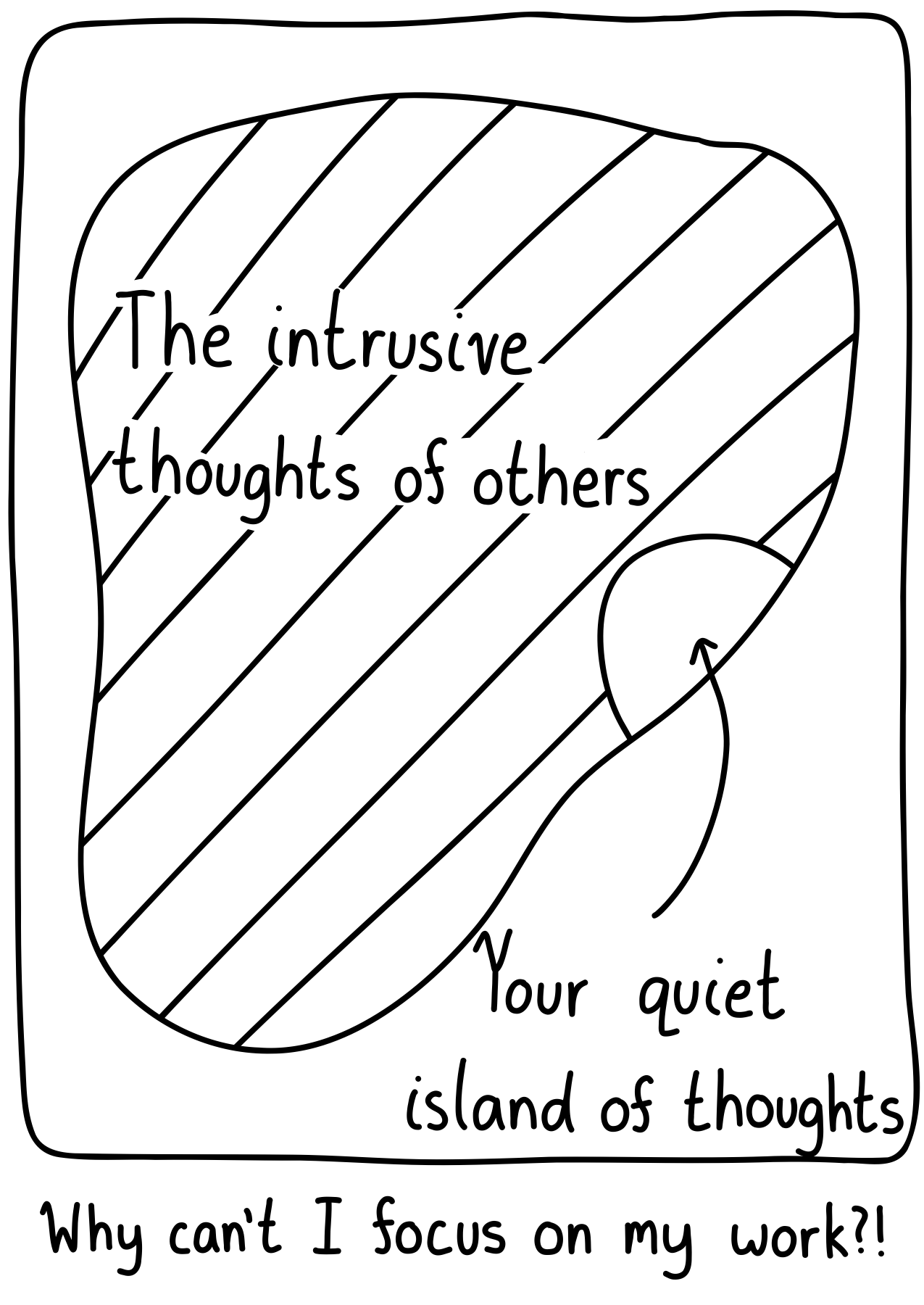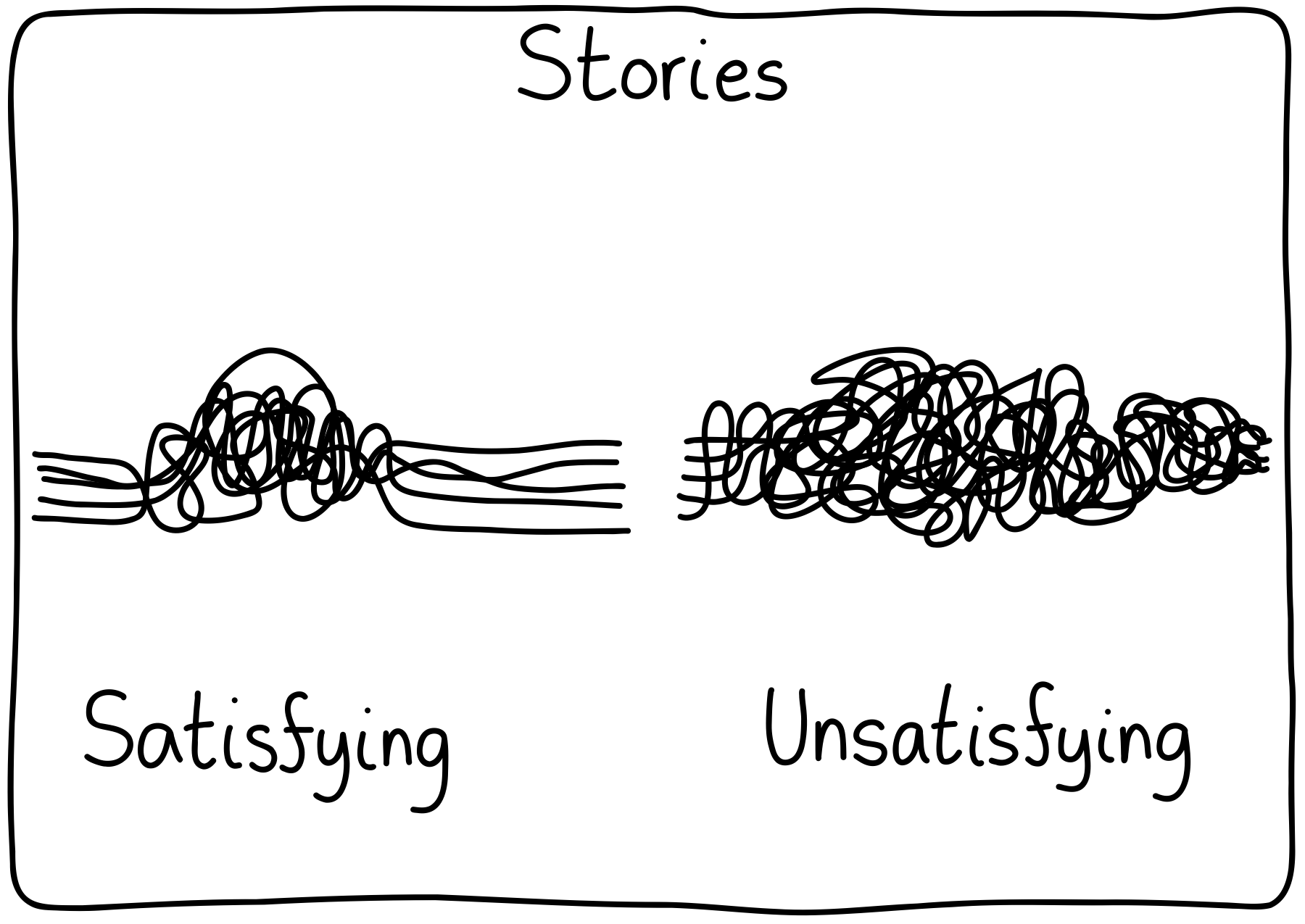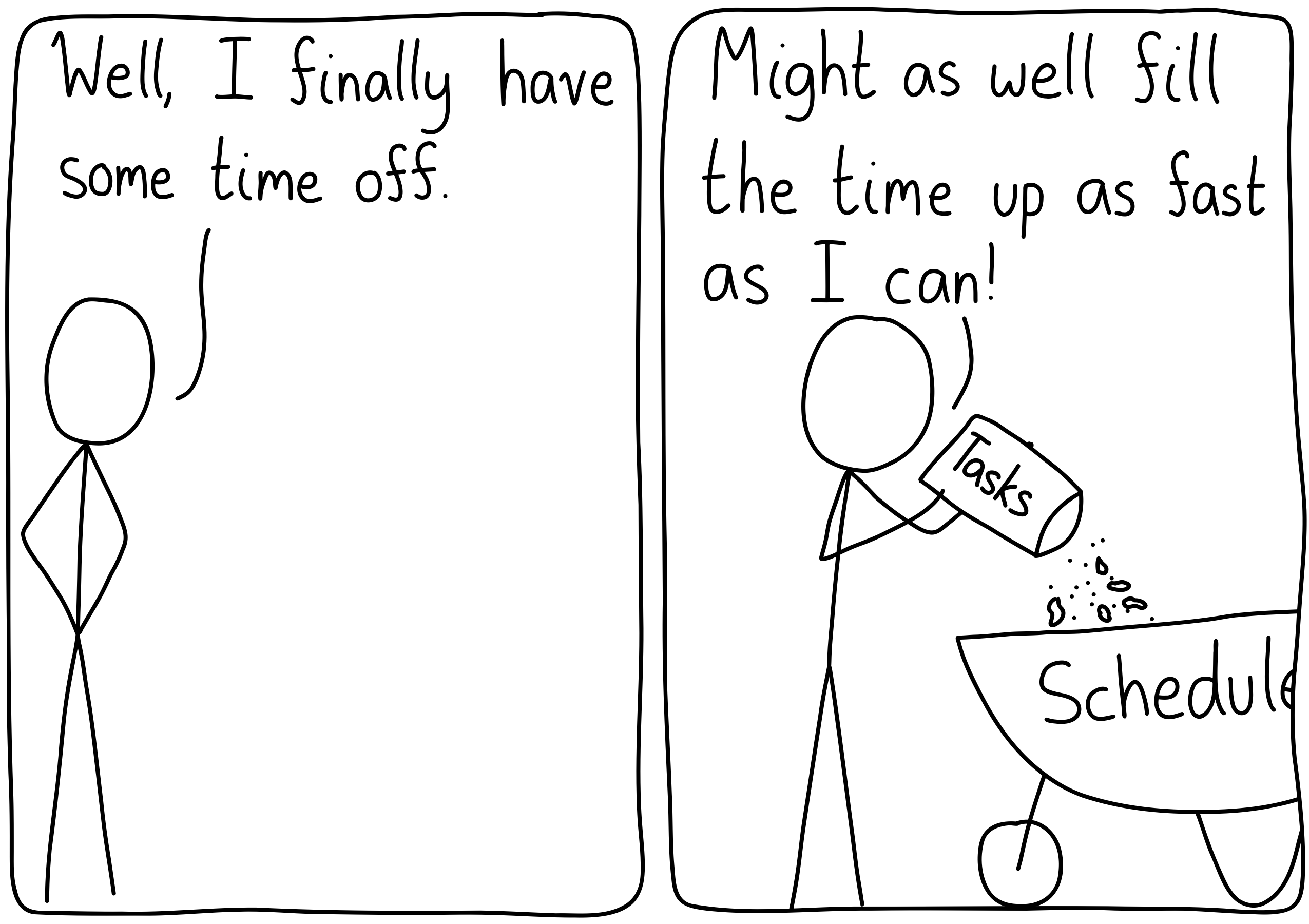 Comics about mathematics, science, and the student life.
Comics about mathematics, science, and the student life.
Vaulting

Not to scale. Equation 1 and Equation 2 would not be seen on the page if done to scale.
01 Sep 2021Overpromise

I always love reading the introduction to papers, because they show me just how far scientists go to stretch their field to touch every part of life. Unfortunately, it rarely continues into the main part of the paper.
27 Aug 2021Promising Paths

The trick to being a scientific icon is to carve that first small footpath, and then convince others to work on making it a lot more friendly!
25 Aug 2021Breathing Room

If you’ve ever had a song stuck in your head, this is exactly the problem.
20 Aug 2021Knot Theory

The truth though is that the best stories leave me wanting more, with some of the minor threads still a little knotted.
18 Aug 2021Away

I’m just beginning my two-week vacation now, so we’ll see how it goes when I return!
16 Aug 2021Data Collection

The number of “small tweaks” asked of you is inversely proportional to the effort needed to implement them.
11 Aug 2021

